Last year, when Sung Jo-chen (宋若甄) found out that the owner of the land on which she’s been growing rice since 2017 was planning to sell the 791-ping (坪, 2,615 square meters) plot, she sought the support of strangers.
Under the slogan “One Ping Landowner” (一坪地主), Sung invited Taiwanese concerned about the state of the countryside and the future of agriculture to each buy a tiny part of the property in Yilan County’s Yuanshan Township (員山) on condition they assign farming rights to her for the next 20 years.
In ecological terms, two decades might not seem a long time. But Sung had legal and personal reasons for choosing that period of time. The first is that no lease in Taiwan — unless its main purpose is for the construction of buildings — may exceed 20 years. The second is that, in 20 years’ time, she’ll be almost 60. “It may not be possible for me to make any promises beyond that,” she says.
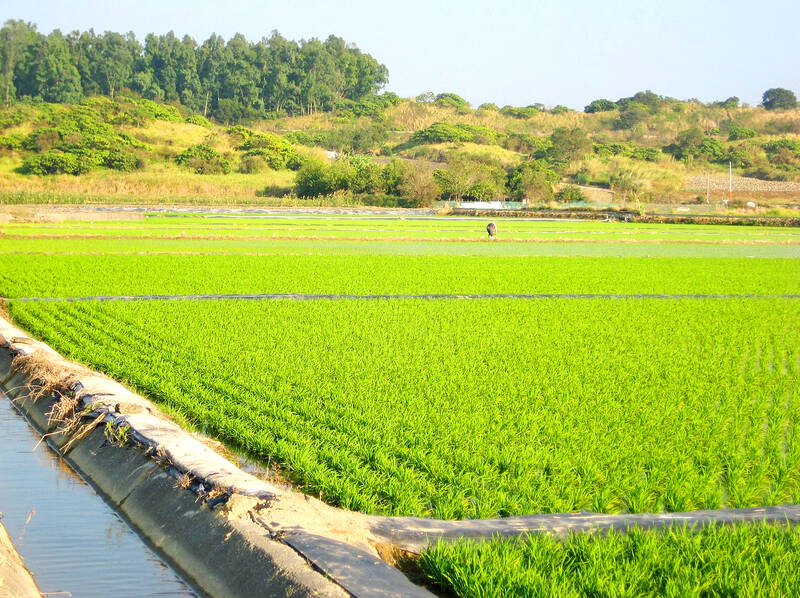
Photo: Steven Crook
Sung goes on to explain that, because much of what farmers like her do is innovative, “We should leave some flexibility, so we can make adjustments later. If we do things right, it’s likely that someone will take over.” And if she gets it wrong, the system can be changed, she says.
Her initial push for backers brought in just under NT$9.5 million. This wasn’t enough, however, so on Dec. 15 Sung launched a campaign on WaBay, a Taipei-based crowdfunding platform. By late February, she was over the finishing line, having asked for NT$5 million and receiving pledges totaling NT$5.54 million.
The farm’s ownership is now divided among 527 individuals, 395 of whom bought just one ping each (3.31 square meters). Two subscribers signed up for the largest possible share, 20 ping (66.12 square meters). Those who made commitments during the first phase paid NT$18,500 for one ping. In the second phase, the price was set at NT$20,000 per ping, to cover WaBay’s fees.
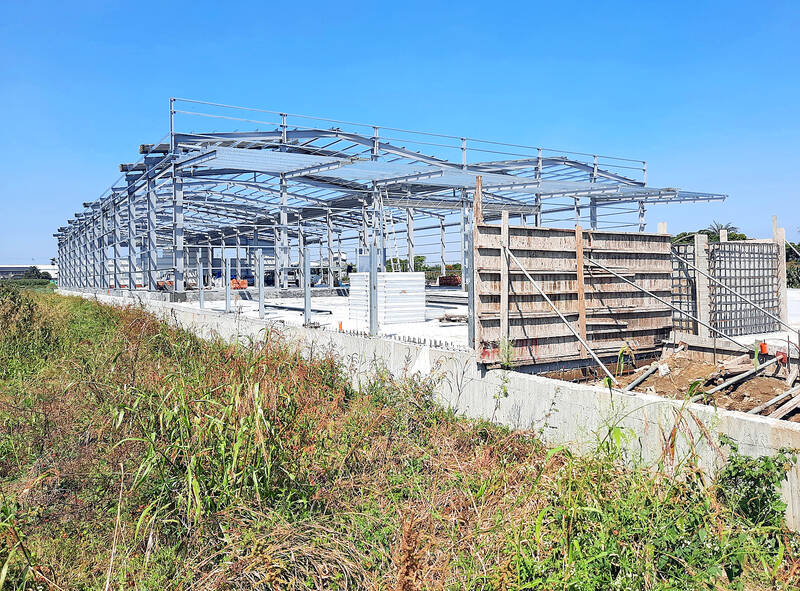
Photo: Steven Crook
Purchasing the land used up just over three quarters of the NT$15.0445 million that was raised. The remainder has been set aside to pay WaBay’s commission, to cover realtor and legal fees and to build a small pavilion where new owners can sit and look out at the land they’ve helped save from development. Providing each landowner with an annual report is another expense.
Asked if the entire fundraising effort turned out to be easier than she’d expected, Sung says she isn’t sure how to answer. “I imagined it would be difficult. I also thought it might be impossible and that I’d have to raise additional funds myself. It took us six months to get all NT$15 million,” she says, adding, “It wasn’t an easy task, but I persisted because I believed we could do it.”
‘THE JOYS OF FARMING’
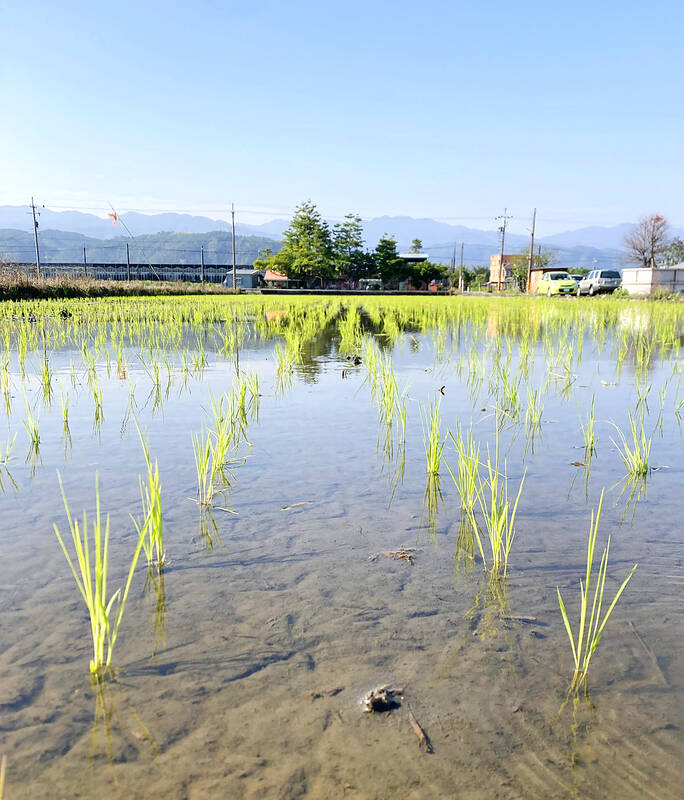
Photo courtesy of Sung Jo-chen
One possible factor in Sung’s success is that she isn’t a typical rice farmer. As a co-founder of Island Time (慢島生活), a social enterprise based in Shengou (深溝) in Yuanshan, she’s been introducing people who yearn for a rural life — but have no background in agriculture — to the joys of farming.
Island Time’s Web site claims it has “successfully helped many people to enter farming [and] establish a foundation for economic independence.” It offers classes that aim to give attendees a better understanding of how to build their life in the countryside, and through which they can meet mentors and like-minded peers.
The “One Ping Landowner” page on WaBay stressed the rate at which Yilan County is losing its farmland. Since 2013, licenses for the construction of more than 3,300 “farmhouses” (農舍) have been issued, eating up 98.4 hectares of agricultural land — almost four times the area of Taipei’s Daan Forest Park (大安森林公園). Many of these houses are actually city folks’ second homes.
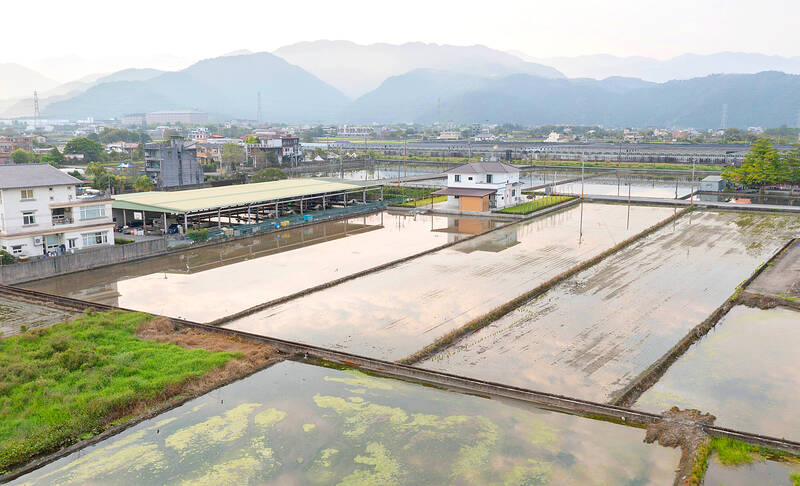
Photos courtesy of Sung Jo-chen
Saying that “the landscape of Lanyang Plain (蘭陽平原) has changed dramatically, and its water resources and ecological environment have deteriorated,” Sung’s campaign pointed out that plans to extend the high-speed rail network to Yilan have exacerbated development pressure, causing the county’s agricultural land to be “been priced at sky-high levels and treated as construction land.”
Yilan isn’t the only place where this is happening, and it isn’t a new problem. People who’ve spent their entire lives in Meinong (美濃) in Kaohsiung complained that farmhouse construction has destroyed much of the area’s scenic appeal. At the same time, rampant speculation has driven up land values to the point where disadvantaged farmers no longer qualify for government assistance, forcing them to sell. This further weakens a fragile agricultural sector and does nothing for the country’s food security.
Between 2000 (when land-use rules were relaxed, making it easier to build on farmland) and 2013, some 6,324 farmhouse projects in Yilan were approved. Nantou County recorded 4,048, while Miaoli County saw 3,359. The total for the entire country was 28,405, the News&Market Web site reported on March 3, 2017.
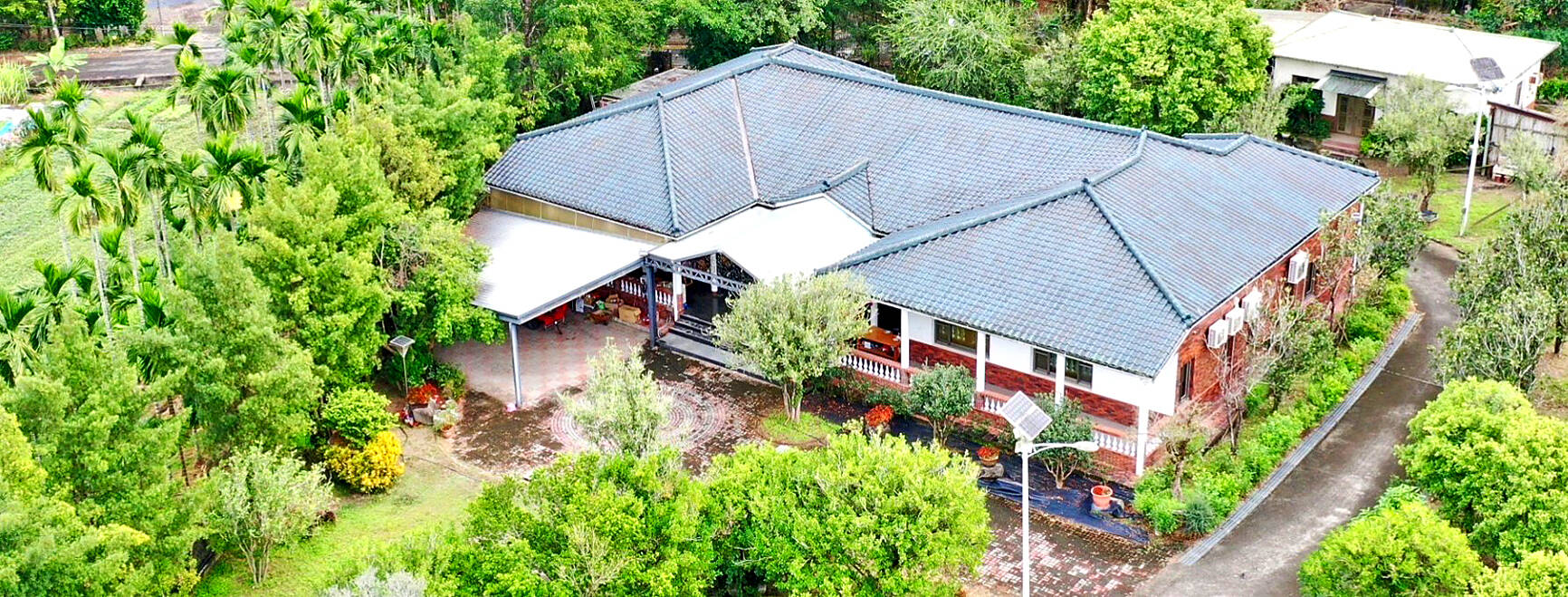
Photo courtesy of Legislator Hsu Chih-chieh
In addition, there are thousands of farmhouses and other structures which were never licensed or which have been illegally expanded. As Tsai Jia-shen (蔡佳昇) noted in a Feb. 10, 2022 article for Taiwan Insight, the online magazine of the Taiwan Research Hub at the UK’s University of Nottingham, the amount of illegal construction exceeds local governments’ inspection and enforcement capacities.
The environmental impact of each farmhouse far exceeds the loss of biodiversity that results from paving over a patch of agricultural land. Taller buildings reduce the amount of sunlight reaching adjacent fields and orchards. Impermeable hard surfaces hinder groundwater recharge while soaking up daytime heat, influencing the microclimate. Household sewage may pollute irrigation channels. And the fragmentation of larger fields makes mechanized agriculture more difficult.
Sung isn’t the first Taiwanese to use crowdfunding in a bid to save land from development. As News&Market reported on Nov. 10, similar co-purchasing initiatives aim to preserve locations in Miaoli and Pingtung.
As of March 29, more than 600 people had registered their support for Mountain Cat Forest (山貓森林), a project in Miaoli County’s Shihtan Township (獅潭). This near-pristine patch of woodland is inhabited by leopard cats, Reeves’s muntjacs and other wild animals.
Veteran activist Hong Hui-hsiang (洪輝祥) appealed for benefactors to head off a risk that the rented land, on which he grows organic avocados, would be turned into a gravel-extraction site or covered with electricity-producing photovoltaic panels. Having gathered 70-plus financial backers who chipped in at least NT$100,000 each, he was able to buy the property, which is just over three times the size of Sung’s rice farm.
News&Market quoted Peter Chung (鍾豐駿) of the Taiwan Environmental Information Association (TEIA, 台灣環境資訊協會) as saying that, because the Ministry of Agriculture has yet to devise appropriate regulations, it’s currently impossible to establish environmental trusts which could overcome some of the problems likely to occur within co-purchased projects like Sung’s and Hong’s.
A NATIONAL TRUST
With government support, a nonpolitical body akin to the UK’s National Trust could acquire and manage ecologically valuable properties throughout Taiwan. The National Trust owns a fifth of the coastline in England, Wales and Northern Ireland; over 200 historic houses; and extensive farmlands, moorlands, and woodlands.
Since 1907, the National Trust has had a unique power to declare land inalienable, meaning that it can never be sold, mortgaged or even compulsorily purchased by the government without parliamentary approval. Around 95 percent of the land it holds is inalienable, and this is a key reason why so many landowners have been willing to donate or bequeath properties to it.
It’d take decades for a local institution to earn confidence of the sort now enjoyed by the Britain’s National Trust. Are there any politicians keen to be remembered in a century’s time and willing to get the ball rolling today?
Steven Crook, the author or co-author of four books about Taiwan, has been following environmental issues since he arrived in the country in 1991. He drives a hybrid and carries his own chopsticks. The views expressed here are his own.